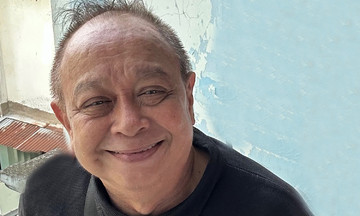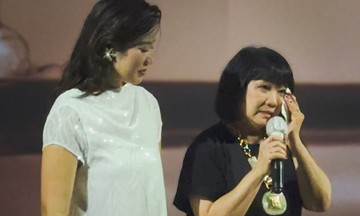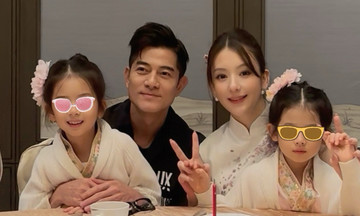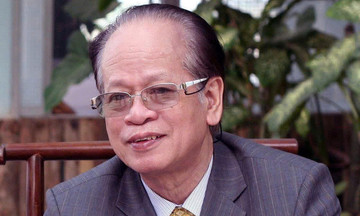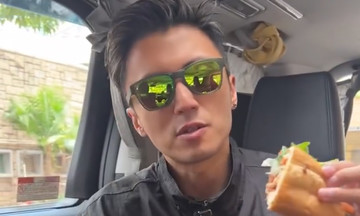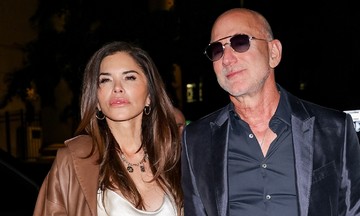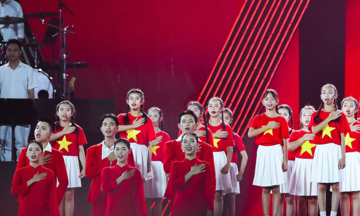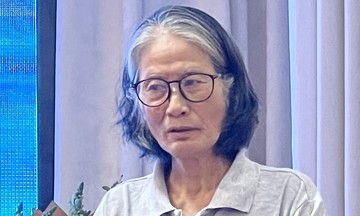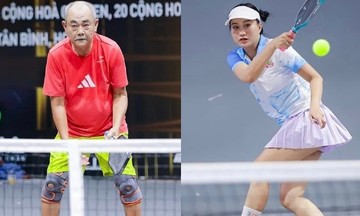President Ho Chi Minh always emphasized the role of youth in the nation's development and existence, believing that "Youth is the springtime of society." From the resistance years to peacetime, many songs were composed for youth union members and young people, promoting the spirit of fighting and working. Composer Vu Bao Hoang's "Youth's Aspirations" is a prominent example of this sentiment.
In 1997, the composer participated in activities at the Ho Chi Minh City Youth Union. He joined students and young volunteers in various volunteer movements across the city. While reading "Excerpt from Uncle Ho's speech at the opening ceremony of Vietnam National University" (19/1/1955), he was inspired by President Ho Chi Minh's words: "The duty of youth is not to ask what the country has done for them, but to ask themselves what they have done for the country? What can they do to benefit the country more? How much have they sacrificed and strived for the country's benefit?"
These words sparked the composer's emotions, leading him to quickly complete the chorus: "Don't ask what the Fatherland has done for you. But ask what you have done for the Fatherland today."
The song begins with the young generation's determination and desire to contribute to the country's development: "The long road to the future of the homeland is calling. Today's youth join hands to build a new day."
He uses the words "up to the mountains," "down to the sea," placing individuals in a vast and challenging space. Despite "storms" and "hardships," the young generation remains steadfast, overcoming all obstacles. On this journey, they will have companions, studying and working together for the Fatherland's bright future.
Along with the inspiring lyrics, the melody is full of energy, like a marching song. The song inspires a spirit of dedication in young people, reminding everyone to live with ideals and strive for great goals.
For over three decades, the melody has been featured in numerous programs, from major holidays to youth union and student activities nationwide. The song is well-received for its relatable, energetic lyrics and meaningful message.
At the "Fatherland in Our Hearts" concert on the evening of 10/8, tens of thousands of spectators, mostly young people, sang along and waved red and gold star flags. Earlier, during the 50th anniversary of the country's reunification, Tung Duong's remixed version of the song trended on TikTok and appeared in many historical videos. Recorded during the Covid-19 pandemic and released last year, the singer's powerful vocals and youthful energy captivated listeners. Many believe Tung Duong "was born to perform patriotic songs."
Ha Phuong, 20, a university student in Hanoi, discovered the song through TikTok and then researched its origins and lyrics. She loves Tung Duong's version and feels a greater responsibility to cultivate knowledge and contribute to the country after listening to the song.
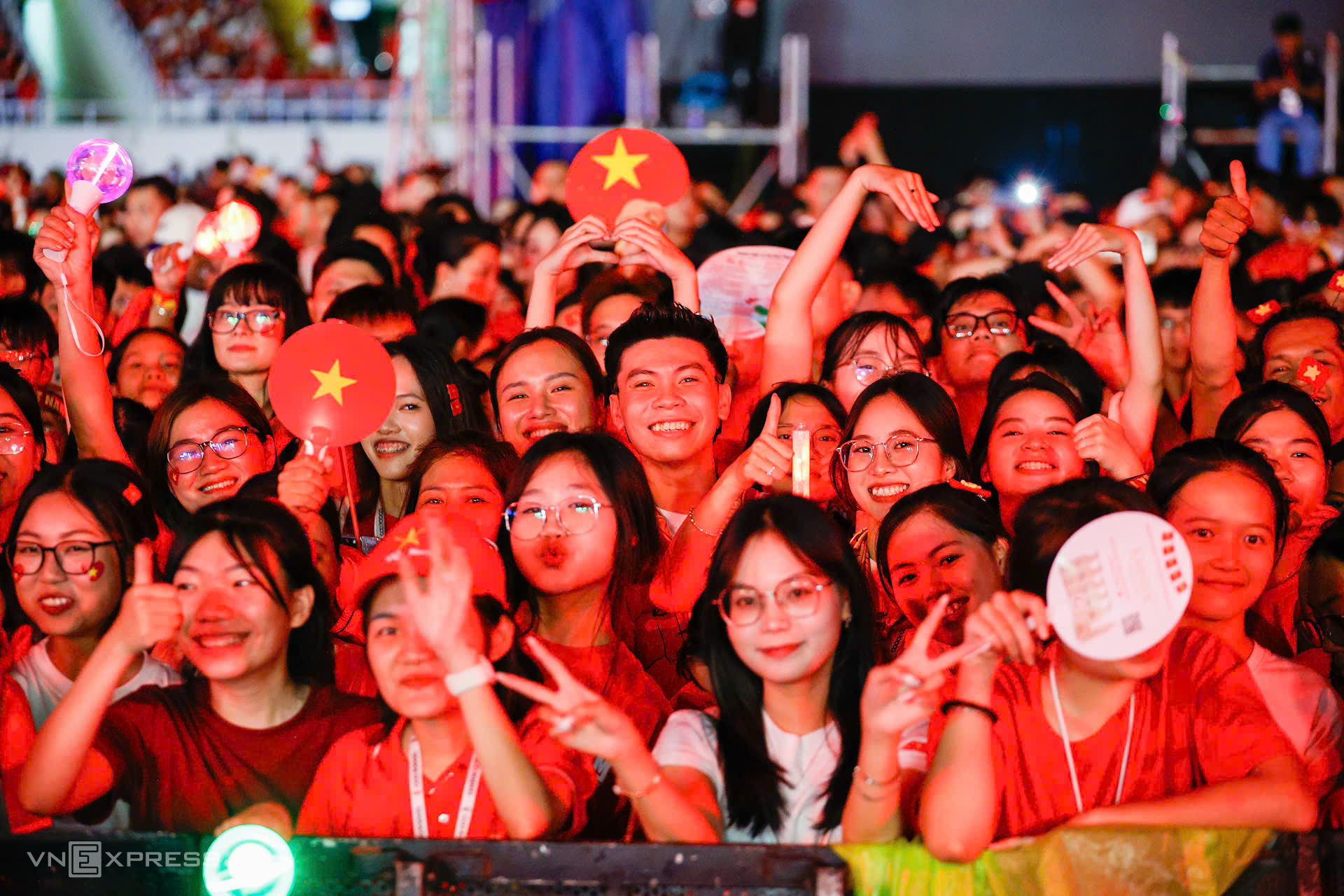 |
Spectators holding red and gold star flag accessories at the "Fatherland in Our Hearts" concert. Photo: Giang Huy |
Composer Vu Bao Hoang, born in 1956 in Bien Hoa, Dong Nai, currently lives in Ho Chi Minh City. He graduated from Ho Chi Minh City College of Pedagogy and Ho Chi Minh City Conservatory of Music. He was a teacher before becoming a journalist, serving as Editor-in-Chief of Ho Chi Minh City Tourism Magazine from 2004 until his retirement in 2016. He is known for songs such as Phuong Hong (poetry by Do Trung Quan), Huong Tham (poetry by Phan Thi Thanh Nhan), Huong Tram (poetry by Do Trung Quan), Gui Lai Em, Mua He Xanh, and Hanh Khuc Sinh Vien Viet Nam.
Phuong Linh




